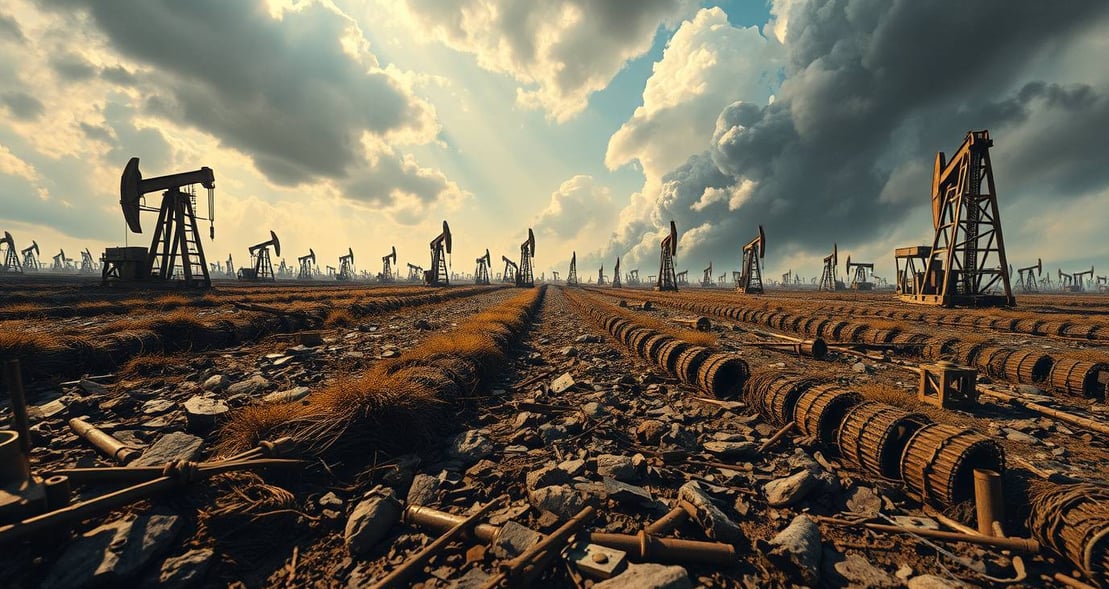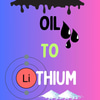The History of Crude Oil: From Ancient Times to Modern-Day Energy


Crude oil has played an essential role in shaping the world as we know it today. From its use in ancient civilizations to its status as a key driver of the global economy, crude oil has had a profound impact on industries, geopolitics, and daily life. This blog post explores the fascinating history of crude oil, tracing its origins, evolution, and the monumental shifts it has caused throughout history.
1. Early Discovery and Use: A Resource of Ancient Civilizations
The history of crude oil dates back thousands of years, with evidence suggesting its use in ancient cultures. The earliest records show that natural bitumen (a form of crude oil) was used by the ancient Sumerians around 3000 BC in modern-day Iraq. These early civilizations used bitumen for waterproofing boats, building materials, and as an adhesive.
In China, the first recorded drilling for oil occurred during the Zhou Dynasty (1046-256 BC), when bamboo pipes were used to extract natural gas and oil from shallow wells. This indicates that, even in ancient times, societies were aware of the potential of oil as a valuable resource.
2. The Rise of Petroleum: Industrial Revolution and the 19th Century
While oil was used in ancient civilizations, it wasn’t until the Industrial Revolution in the 19th century that crude oil truly began to have a global impact. In 1859, the first commercial oil well was drilled by Edwin Drake in Titusville, Pennsylvania, marking a significant milestone in the history of petroleum. Drake’s well revolutionized the industry, as it was the first time crude oil was extracted specifically for the purpose of refining into kerosene, which became a vital fuel for lamps.
As technology advanced, oil drilling techniques improved, and demand for petroleum products, particularly kerosene, grew rapidly. This boom in oil extraction paved the way for the growth of the petroleum industry, particularly in the United States, Russia, and parts of the Middle East.
3. The Birth of Major Oil Companies
As oil became more valuable, large-scale companies were formed to control and expand oil production. John D. Rockefeller is one of the most prominent figures in this phase, founding Standard Oil in 1870. Standard Oil quickly became the largest oil company in the world, dominating the market and controlling over 90% of the U.S. oil industry by the late 19th century.
The rise of companies like ExxonMobil, Royal Dutch Shell, and BP in the early 20th century helped shape the global oil market and established the geopolitical importance of oil. These companies began drilling and refining oil on a massive scale, allowing for the widespread distribution of petroleum products like gasoline, diesel, and heating oil, which fueled the growth of the automobile industry and revolutionized transportation.
4. The Globalization of Oil: 20th Century Geopolitics
The 20th century marked a period of intense geopolitical competition for control of oil reserves. As the demand for petroleum products surged, oil-producing nations began to recognize the value of their natural resources. The discovery of vast oil reserves in the Middle East, particularly in countries like Saudi Arabia, Iran, and Iraq, shifted the balance of power in the global energy market.
In 1960, the formation of the Organization of the Petroleum Exporting Countries (OPEC) created a coalition of oil-producing nations that sought to manage and regulate oil production and prices. OPEC became a major player in the global energy market, and its decisions on oil production and pricing had significant implications for the global economy.
5. The Rise of Oil as a Strategic Resource: Wars and Crises
As oil became an increasingly vital resource, it also became a point of conflict. The oil crises of the 1970s, including the Arab oil embargo of 1973, demonstrated how the control of oil could be used as a political tool. The price of oil surged, leading to economic turmoil in many oil-importing countries. These events highlighted the vulnerability of countries dependent on imported oil and led to efforts to diversify energy sources.
Throughout the 20th and 21st centuries, oil remained at the center of geopolitical tensions, with countries vying for access to oil reserves. Conflicts like the Gulf War (1990-1991), and the Iraq War (2003), as well as the ongoing tensions in the Middle East, were heavily influenced by the strategic importance of oil.
6. The Environmental Impact of Crude Oil
While crude oil has been integral to economic development, its environmental consequences have become more apparent in recent decades. The extraction, refining, and burning of oil contribute significantly to air pollution and greenhouse gas emissions, making it a major contributor to climate change. The Deepwater Horizon oil spill in 2010 and other environmental disasters have highlighted the risks associated with oil drilling and extraction.
As global awareness of environmental issues has increased, the focus has shifted towards reducing dependence on fossil fuels and transitioning to cleaner sources of energy, such as solar, wind, and lithium-based technologies. This marks the beginning of a new chapter in the history of energy, as we seek alternatives to crude oil that are more sustainable and environmentally friendly.
7. The Future of Crude Oil: A Shift to Renewable Energy
While crude oil remains a dominant energy source, the future is looking increasingly toward renewable energy solutions. As technology advances and the world becomes more committed to reducing carbon emissions, the reliance on oil for power generation, transportation, and industrial use is expected to diminish. However, crude oil will still play a role in sectors such as chemicals, plastics, and manufacturing, where alternatives are not yet feasible.
The ongoing energy transition is redefining the energy landscape, and while crude oil has been a driving force behind industrialization and modern economies, the shift toward a sustainable future is inevitable. Lithium-ion batteries, electric vehicles, and solar energy are becoming the new frontier of energy solutions, signaling the gradual decline of oil’s role in the global energy market.
Conclusion
The history of crude oil is a story of discovery, growth, and transformation. From ancient uses of bitumen to the rise of global oil companies and the ongoing energy revolution, crude oil has shaped modern society in ways we are still feeling today. While the world begins to transition to cleaner energy sources, crude oil’s legacy remains deeply embedded in the global economy, and understanding its history is key to navigating the future of energy.
contact@oiltolithium.com
